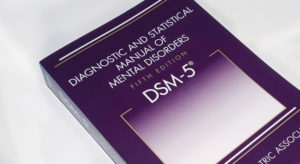From Psychology Today: “None other than the great Carl Rogers, a father of humanistic psychotherapy, posed significant challenges to the practice of diagnosis when he—as a professor at the University of Chicago—helped establish a counseling center where he eliminated diagnosis altogether, finding the practice to be inadequate, prejudicial, and often misused.
Three years prior to arriving in Chicago—Rogers, in Counseling and Psychotherapy (1942), shed light on the pitfalls of information gathering and diagnosis in psychotherapy. He explained that, indeed, the field of psychology had gained a better understanding of human behavior, that psychotherapists understood more adequately the factors which underlie patterns. However, he instructed, ‘Then came the natural mistake of assuming that treatment was merely diagnosis in reverse, that all that was needed to help the individual was to explain to him the causes of his behavior (p 25).’ He continued, ‘We do not change the client’s behavior very effectively simply by giving him an intellectual picture of its patterning, no matter how accurate.’ (p. 27)
Renowned psychologist James Hillman (1967) warned—
‘He then begins to look at himself as an object, to judge himself good or bad, to find faults and place blame for these faults, to develop more superego and ego at the expense of simple awareness, to see himself as a case with a label from the textbook, to consider himself as a problem rather than to feel himself as a soul.’ (p. 23-24)
…Our lives are bound into complexly interwoven ecologies of relationship, experience and meaning that evade compartmentalization. Diagnostic models of mental health conditions have limited usefulness and, in many cases, questionable origins. May we clinicians know well the models we must use, while doing so with a great deal of intellectual honesty and clinical humility.”












